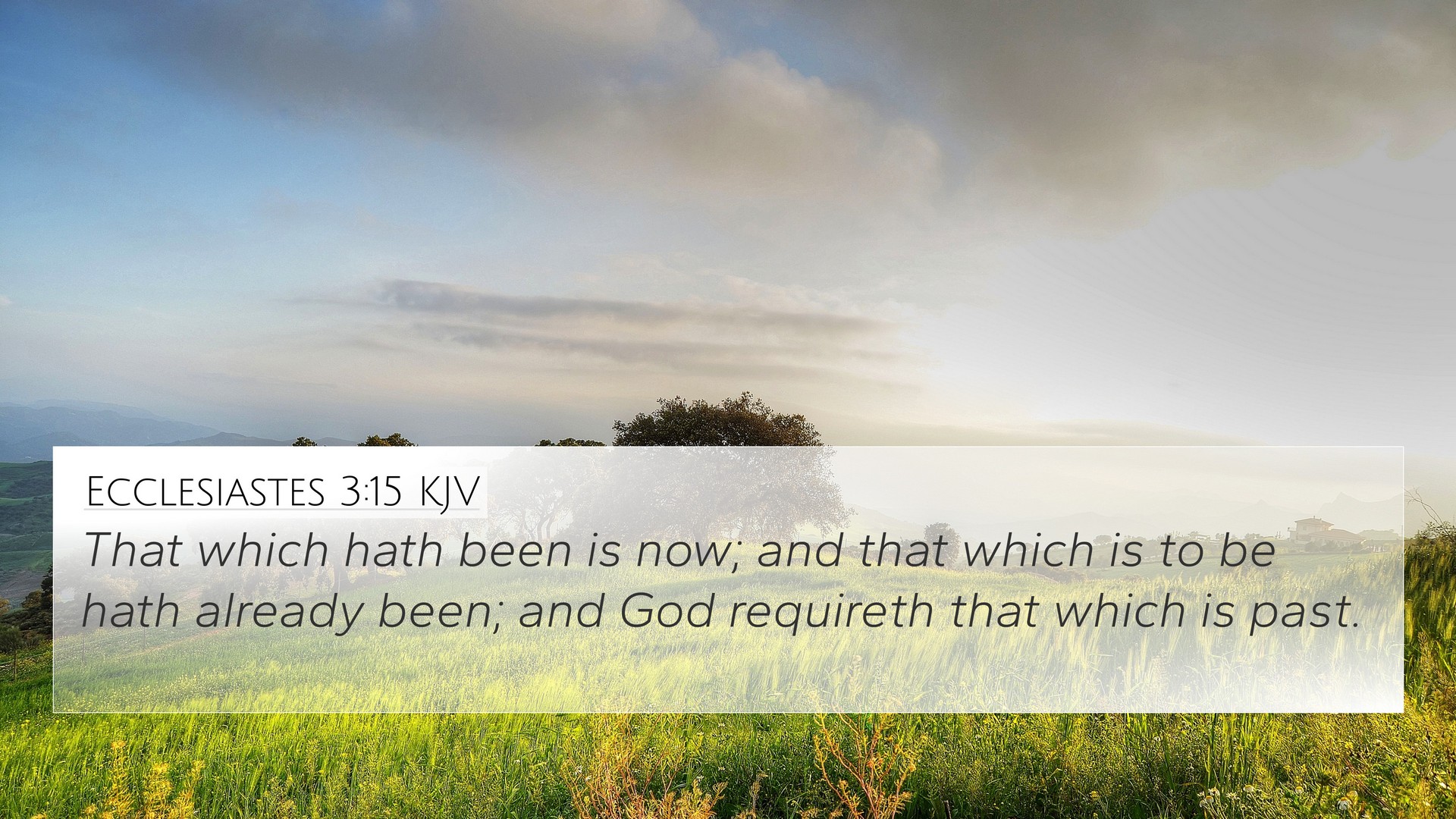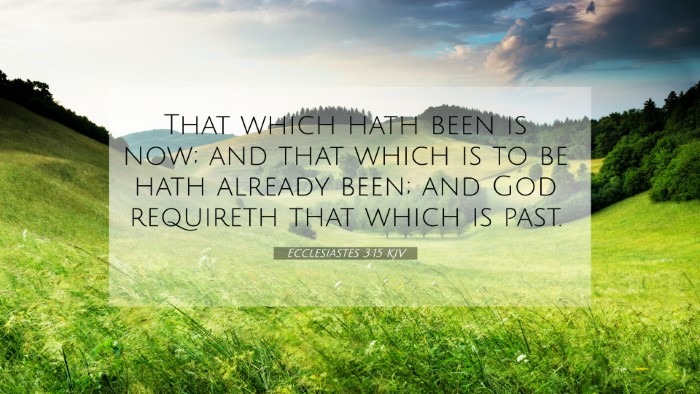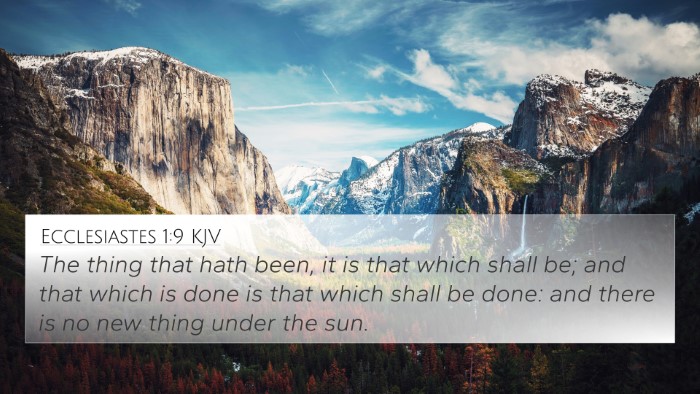Understanding Ecclesiastes 3:15
Ecclesiastes 3:15 reads: "That which is now, already has been; and that which is to be, has already been; and God seeks what has been driven away." This verse emphasizes the cyclical nature of time and the divine sovereignty over history. The interpretations from various public domain commentaries provide deeper insights into its meaning.
Verse Analysis
Several key themes emerge from a comparison of commentaries by Matthew Henry, Albert Barnes, and Adam Clarke:
-
The Nature of Time
- Matthew Henry notes that there is an inherent repetition in the cycles of life, where past experiences have significance for present circumstances.
- Albert Barnes elaborates on the idea that human experiences are not merely random occurrences but follow a divine order established by God.
- Adam Clarke points out that this verse reflects on the futility of human efforts to change the divine timeline, indicating that what has happened will occur again.
-
The Sovereignty of God
- Henry emphasizes that God's providence encompasses all events, guiding the destinies of both individuals and nations.
- Barnes agrees, asserting that God's omniscience enables Him to understand and direct the past, present, and future in ways beyond human comprehension.
- Clarke adds that God's authority seeks to reclaim all that is lost, driving home the point that nothing escapes His notice.
-
Human Experience
- The commentaries suggest that acknowledging historical patterns can provide insight for contemporary life, urging us to learn from the past.
- They reflect on the human tendency to overlook the lessons of history, stressing the importance of awareness in our spiritual journey.
Cross-References
Ecclesiastes 3:15 finds connections with several other Bible verses that reinforce its themes:
- Psalm 90:2: "Before the mountains were born or you brought forth the whole world, from everlasting to everlasting you are God."
- Isaiah 46:10: "I make known the end from the beginning, from ancient times, what is still to come."
- Romans 8:28: "And we know that in all things God works for the good of those who love him, who have been called according to his purpose."
- 1 Peter 1:20: "He was chosen before the creation of the world, but was revealed in these last times for your sake."
- Hebrews 13:8: "Jesus Christ is the same yesterday and today and forever."
- Revelation 1:8: "I am the Alpha and the Omega," says the Lord God, "who is, and who was, and who is to come, the Almighty."
- Galatians 4:4: "But when the time had fully come, God sent his Son, born of a woman, born under the law."
Connecting Themes
When linking Bible scriptures and conducting a comparative Bible verse analysis, observing these themes from Ecclesiastes 3:15 can help navigate the scripture:
- The cyclical nature of time: Reflect on how past, present, and future interact in God’s creation.
- Human existence within God’s plan: Understand how individual experiences fit into the broader divine scheme.
- Learning from history: Emphasize the importance of historical context in interpreting current events and future implications.
Tools for Bible Cross-Referencing
To delve deeper into cross-referencing Bible verses, consider the following resources:
- Bible Concordance
- Bible Cross-Reference Guide
- Cross-Reference Bible Study Tools
- Comprehensive Bible Cross-Reference Materials
User Intent and Long-Tail Keywords
For those seeking to maximize their Bible study experience, these keywords may assist:
- How to find cross-references in the Bible: Strategies for navigating scripture.
- Identifying connections between the Old and New Testament: Discovering the continuity of God's message.
- Cross-referencing Biblical texts: Tools to deepen understanding of interconnected themes.
This organized analysis of Ecclesiastes 3:15 demonstrates the rich interplay of scripture and the importance of acknowledging biblical connections. By engaging with these insights, readers can deepen their understanding of temporal existence and God's overarching plan.




